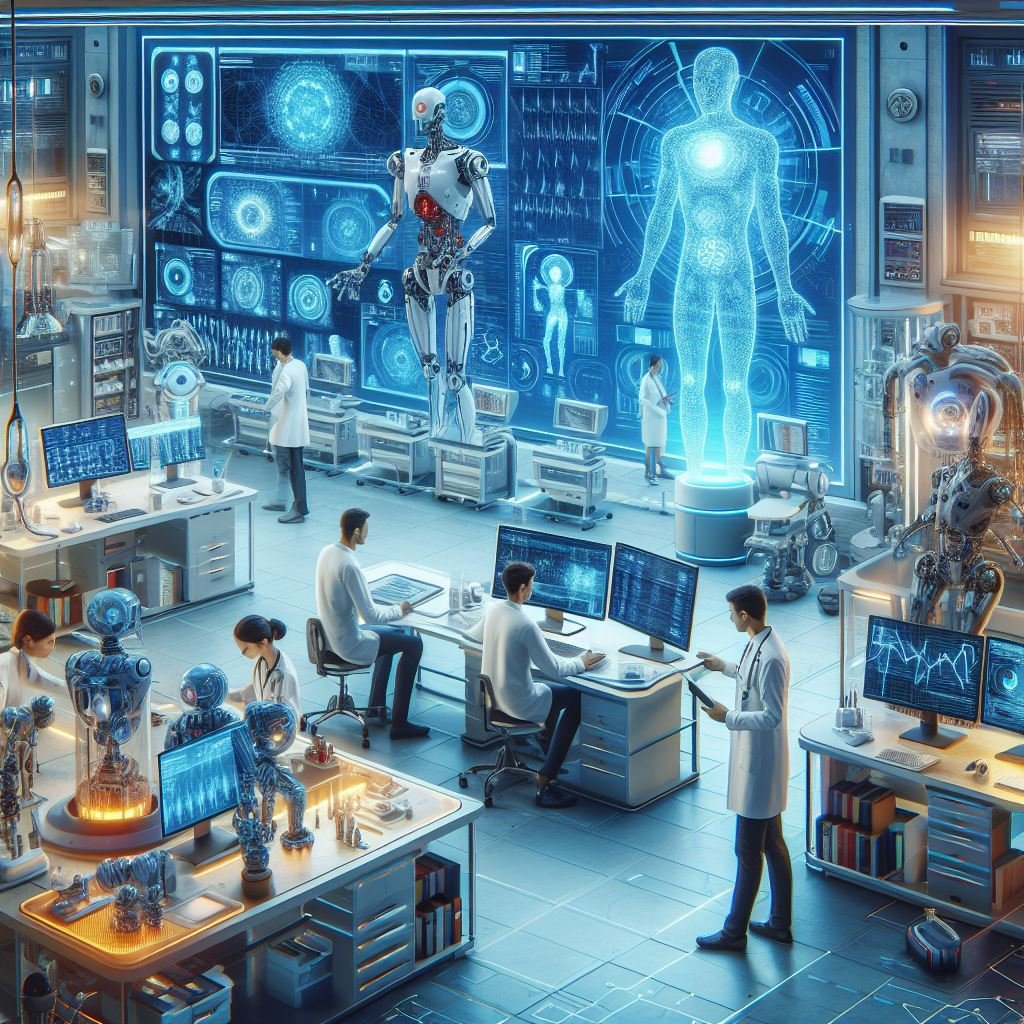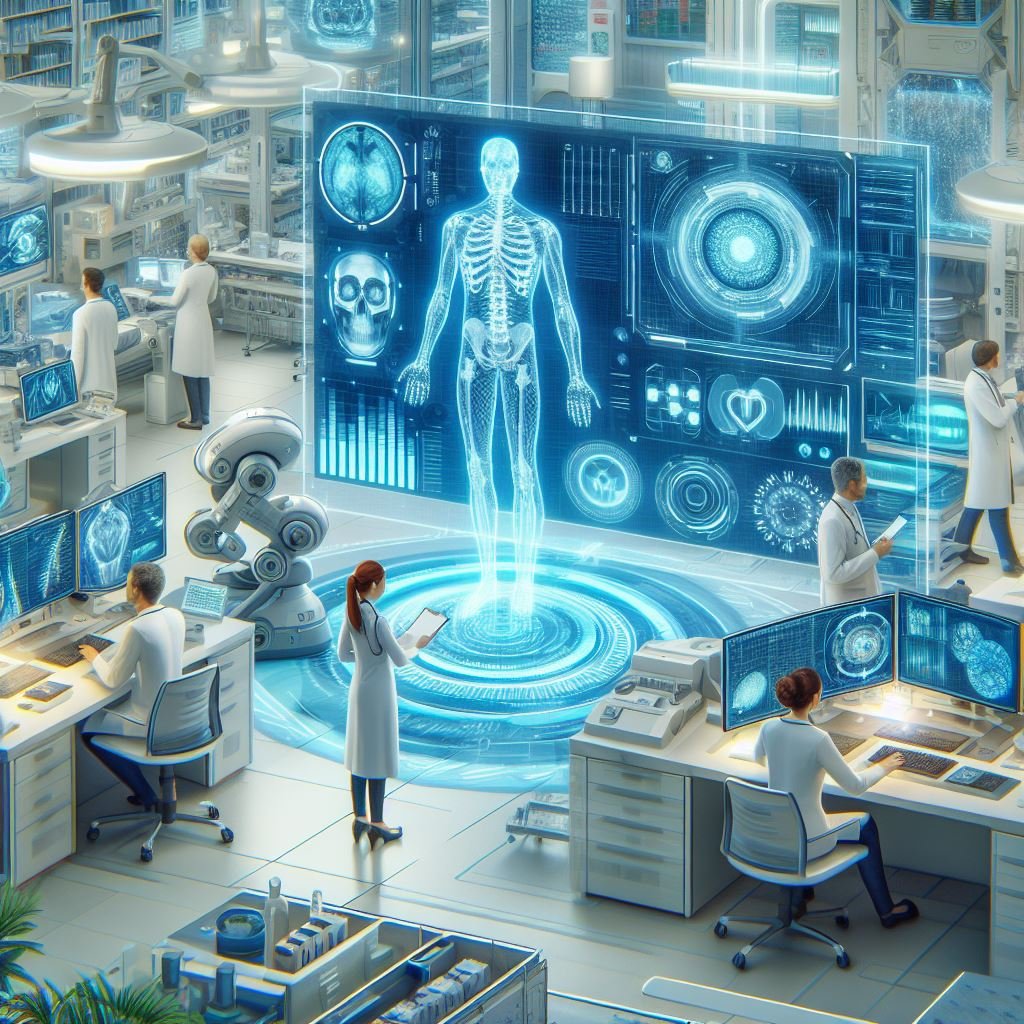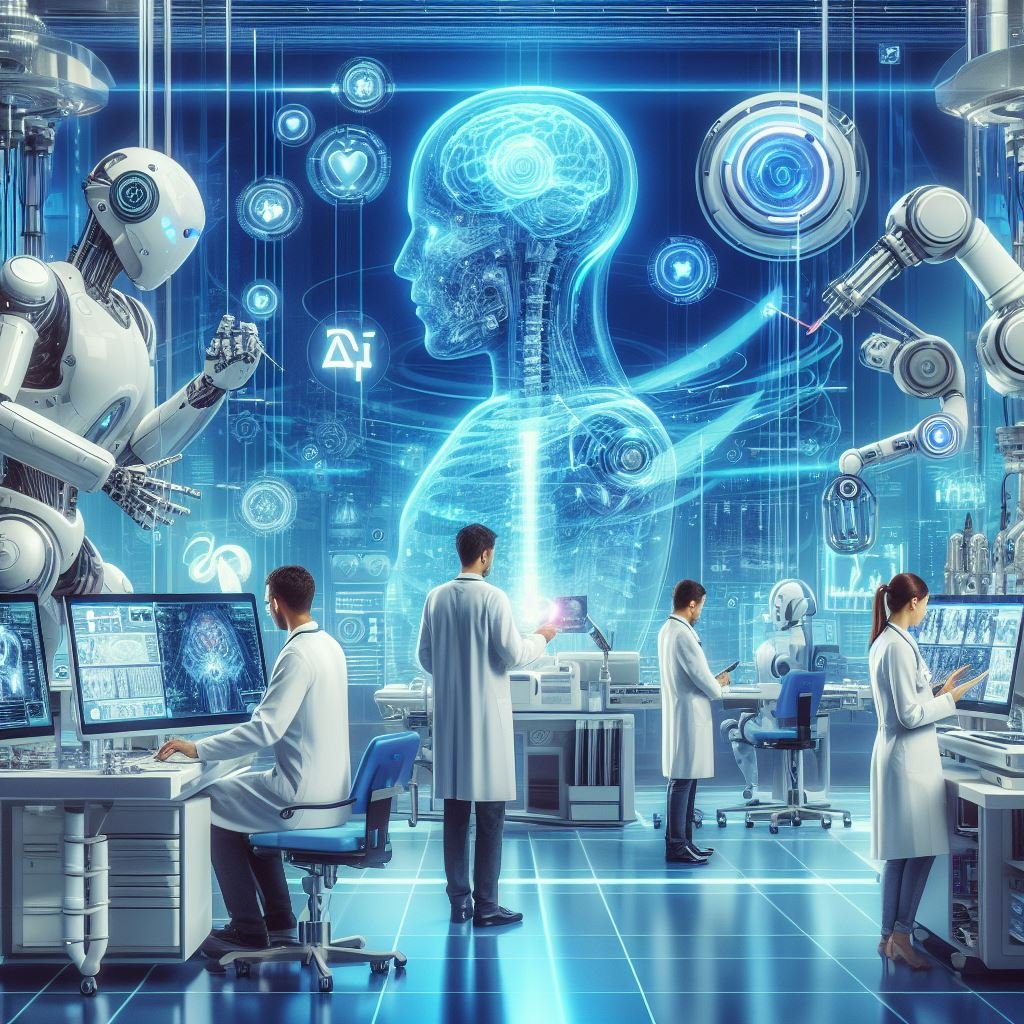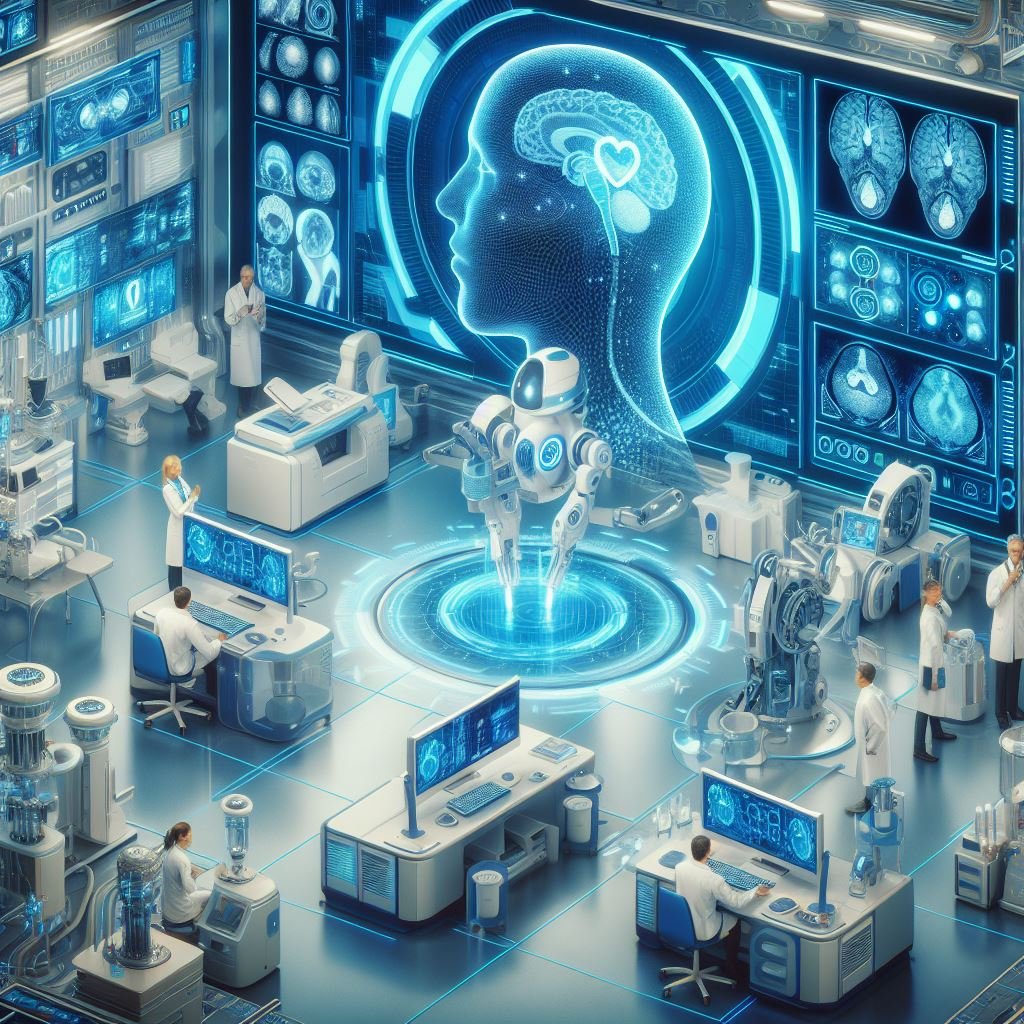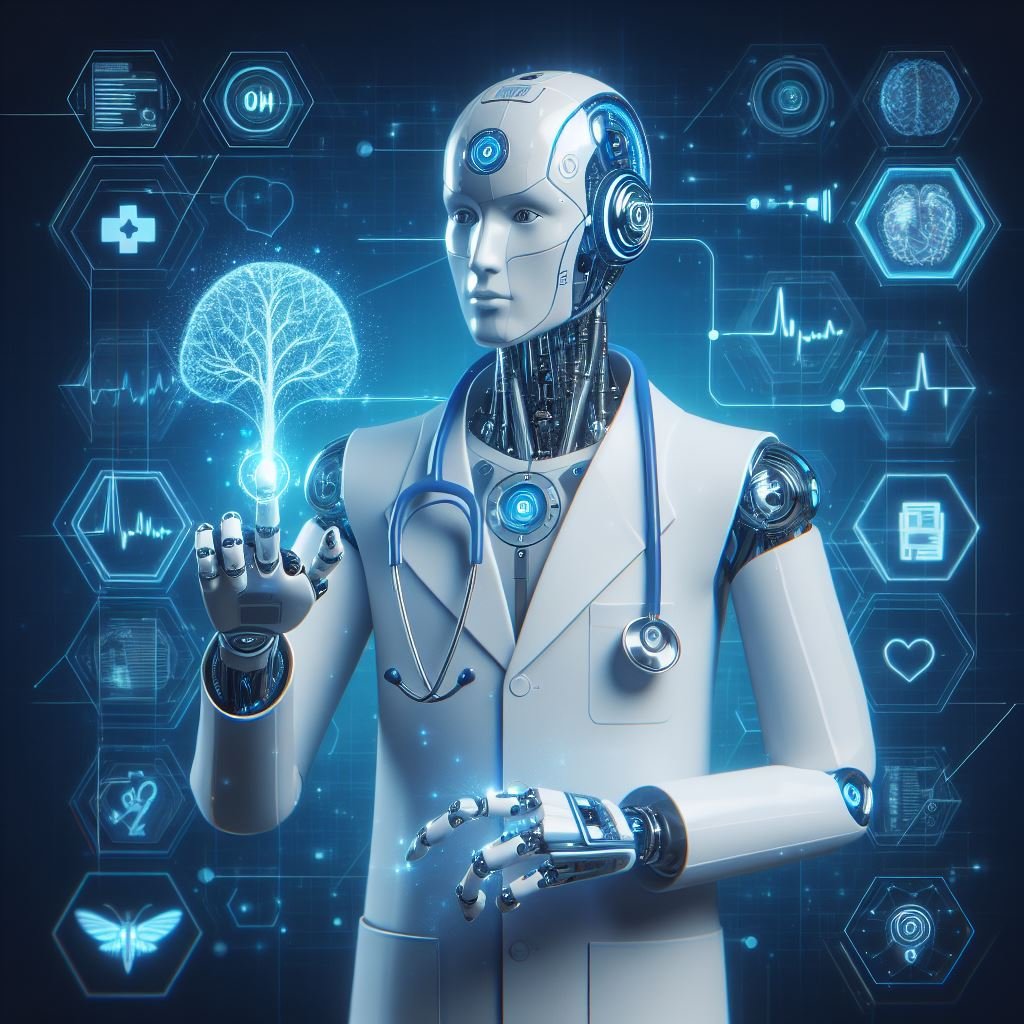Introduction
In recent years, the integration of artificial intelligence (AI) into the field of medical imaging has transformed the way healthcare professionals diagnose and treat various conditions. This section provides an overview of medical imaging and introduces the role of AI in enhancing diagnostic accuracy and efficiency.
Understanding the Basics of Medical Imaging
Before delving into the applications of AI in medical imaging, it’s crucial to understand the fundamental principles of various imaging modalities such as X-rays, CT scans, MRIs, and ultrasounds. This section explores the basics of these technologies and their significance in healthcare.
The Evolving Landscape of AI in Medical Imaging
Rapid advancements in AI have paved the way for innovative applications in medical imaging. This section discusses how machine learning algorithms and deep neural networks are being employed to analyze medical images, improving diagnostic speed and precision.
Enhancing Diagnostic Accuracy with AI
AI algorithms play a pivotal role in improving diagnostic accuracy by aiding radiologists in identifying subtle abnormalities in medical images. This section explores real-world examples of how AI is enhancing the capabilities of healthcare professionals in detecting diseases at an early stage.
Applications of AI in Radiology
Radiology is at the forefront of incorporating AI technologies. From image segmentation to automated lesion detection, this section explores the diverse applications of AI in radiology and how these advancements contribute to more efficient and reliable diagnoses.
AI in Nuclear Medicine and Molecular Imaging
Nuclear medicine and molecular imaging have also witnessed significant advancements with the integration of AI. This section delves into the ways AI is optimizing the interpretation of nuclear imaging studies, leading to improved patient outcomes.
Challenges and Ethical Considerations in AI-Enabled Medical Imaging
While AI has revolutionized medical imaging, it is essential to address the challenges and ethical considerations associated with its implementation. This section discusses issues such as data privacy, algorithm biases, and the need for regulatory frameworks.
Future Trends and Innovations in AI-Medical Imaging Integration
The field of medical imaging is dynamic, with continuous innovations on the horizon. This section explores the future trends and potential breakthroughs in AI applications for medical imaging, paving the way for more personalized and effective healthcare.
Successful Implementations of AI in Medical Imaging
Highlighting real-world examples, this section showcases successful case studies where AI has significantly impacted medical imaging practices, resulting in improved patient outcomes and streamlined healthcare processes.
The Role of AI in Global Healthcare Accessibility
In this section, we explore how AI in medical imaging contributes to global healthcare accessibility by bridging gaps in diagnostic resources. From remote diagnostics to resource-strained regions, AI plays a pivotal role in making healthcare more accessible worldwide.
Uses of AI in Medical Imaging
| Use Case | Description |
|---|---|
| Image Segmentation | AI algorithms assist in precise segmentation of anatomical regions. |
| Automated Lesion Detection | Detection and characterization of lesions through AI-powered tools. |
| Computer-Aided Diagnosis (CAD) | AI aids radiologists in making more accurate and timely diagnoses. |
| Personalized Treatment Planning | Tailoring treatment plans based on AI analysis of patient data. |
| Predictive Analytics | AI predicts disease progression and guides proactive interventions. |
| Radiomics and Texture Analysis | Extracting quantitative features from images for detailed analysis. |
Conclusion
In conclusion, the integration of AI in medical imagings marks a revolutionary phase in healthcare. From enhancing diagnostic accuracy to enabling personalized treatment plans, the synergy between AI and medical imaging holds immense promise for the future of patient care. As technology continues to advance, embracing AI in medical imagings is not just an option but a necessity for healthcare systems aiming to provide efficient, accurate, and personalized medical services.

